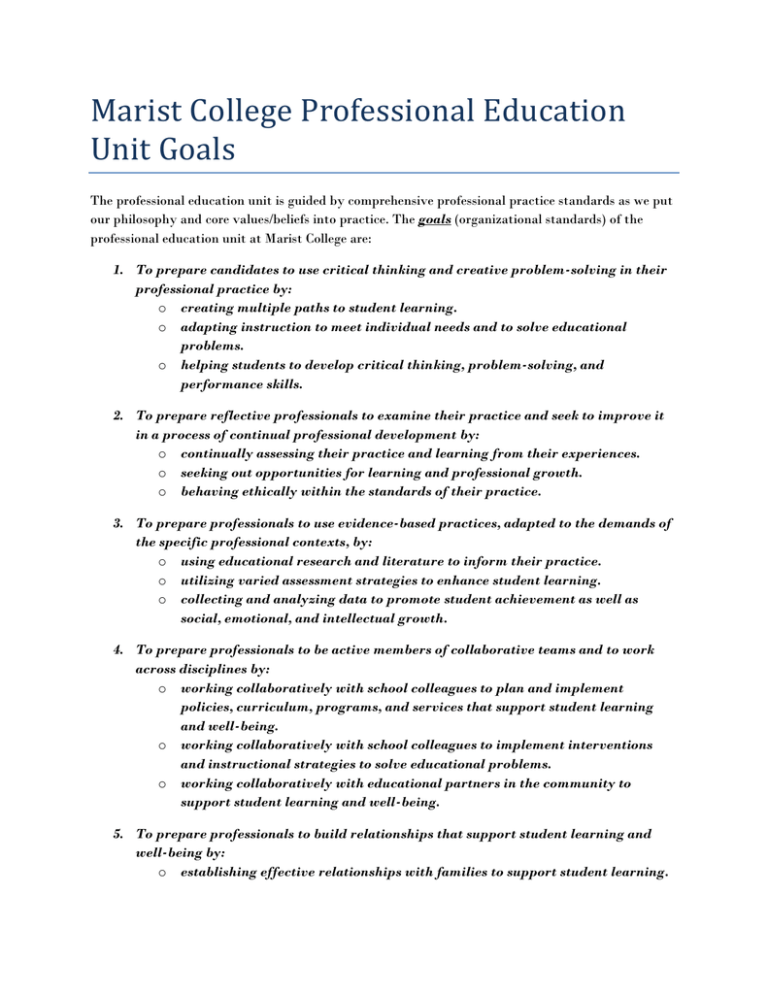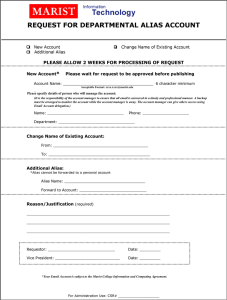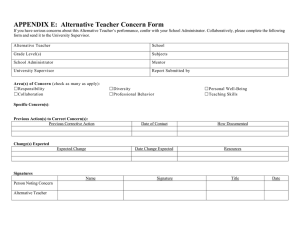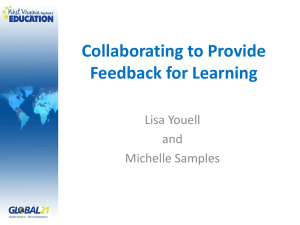Marist College Professional Education Unit Goals
advertisement

Marist College Professional Education Unit Goals The professional education unit is guided by comprehensive professional practice standards as we put our philosophy and core values/beliefs into practice. The goals (organizational standards) of the professional education unit at Marist College are: 1. To prepare candidates to use critical thinking and creative problem-solving in their professional practice by: o creating multiple paths to student learning. o adapting instruction to meet individual needs and to solve educational problems. o helping students to develop critical thinking, problem-solving, and performance skills. 2. To prepare reflective professionals to examine their practice and seek to improve it in a process of continual professional development by: o continually assessing their practice and learning from their experiences. o seeking out opportunities for learning and professional growth. o behaving ethically within the standards of their practice. 3. To prepare professionals to use evidence-based practices, adapted to the demands of the specific professional contexts, by: o using educational research and literature to inform their practice. o utilizing varied assessment strategies to enhance student learning. o collecting and analyzing data to promote student achievement as well as social, emotional, and intellectual growth. 4. To prepare professionals to be active members of collaborative teams and to work across disciplines by: o working collaboratively with school colleagues to plan and implement policies, curriculum, programs, and services that support student learning and well-being. o working collaboratively with school colleagues to implement interventions and instructional strategies to solve educational problems. o working collaboratively with educational partners in the community to support student learning and well-being. 5. To prepare professionals to build relationships that support student learning and well-being by: o establishing effective relationships with families to support student learning. o o modeling effective communication and creating caring relationships with students. participating in learning communities with other professionals. 6. To prepare professionals to promote justice, equity, and access for all students while working to improve schools by: o understanding the effects of context and culture on education and on the behavior and learning of individuals. o treating all students equitably. o striving continually to improve education through their own practice and through their work in schools, communities, and professional organizations. 7. To prepare professionals to base their practice on an understanding of the diversity in human development and cognitive functioning as it impacts learning by: o recognizing the impact of individual differences in race, culture, language, development, temperament, learning style, abilities, and disabilities on learning. o fostering students' self-regulatory skills and developing their respect for individual and cultural differences. o using their understanding of individual and group motivation to promote positive learning environments in classrooms and schools.



